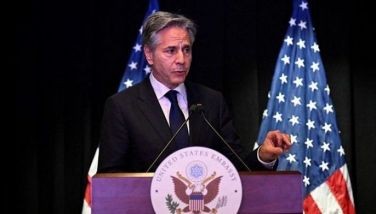Delays in reforms hampering RP's recovery - ADB
The Asian Development Bank (ADB) warned yesterday that the Philippine economy's recovery from the regional financial crisis could be hampered by continued delays in the implementation of key reforms, particularly in the financial sector.
In a report on the Philippine economy's prospects for the year 2000, the Manila-based ADB said key economic indicators have so far been "satisfactory" since the July 1997 crisis and recovery "appears to be gaining momentum."
"However, the recovery process could be halted by lack of progress in key reforms initiated by the government after the advent of the crisis," the ADB report said. "The delays in completing the reforms are beginning to be a major source of concern for investors."
The ADB report follows the Makati Business Club's own Executive Survey Outlook for the last six months of 1999, where the MBC warned of some "danger signals" on the economic horizon due to a lack of clear-cut policies.
At Malacañang, President Estrada dismissed yesterday the criticisms and warnings of the MBC.
Contrary to the dire predictions for the economy this year, the President reassured the Filipino people that the country's economic performance last year, in particular the $4-billion trade surplus, augurs well for the new millennium.
The ADB said initiatives to reform taxation, the banking sector, the capital markets, public expenditure management and the power sector must be sped up to ensure the Philippine economy's complete recovery from the crisis.
"Speedy action on these fronts can regenerate the climate of optimism that the administration created in its early days by announcing its commitment to reforms," the ADB said. "It could revitalize domestic and foreign investment expectations."
The bank noted efforts to address weaknesses in tax collection have only been partly fulfilled, while work on the rationalization of the many tax incentives has so far been limited to drafting legislation.
On reforming expenditure management, the report said several structural weaknesses remain, such as high expenditure on wages and interest, low and declining capital expenditures, inadequate spending on social services and a bloated bureaucracy.
In the banking sector, the ADB said initiatives to amend bank secrecy laws must be pursued aside from continuing the momentum in reforms in the areas of "prudential standards, disclosure, supervision and bank exits and resolutions."
"Current bank secrecy laws prevent full information being available to supervisors and hence makes monitoring and supervision difficult," the report noted.
The bank lamented the slow progress in the privatization of "poor functioning" state firms, such as the National Power Corp., the National Food Authority (NFA) and the Philippine National Railways.
While the government had planned to privatize the three firms, legislation for the process to begin has not been passed as President Estrada announced a postponement in the privatization plans, particularly for the NFA.
The ADB also stressed the need for the government to address other structural weaknesses in the economy, such as low savings, rapid population growth, inadequate rural development, outdated technology and low productivity of small and medium enterprises.
The report added that a "continuation of a favorable regional environment" was also a key factor that could influence the Philippine economy's recovery.
Contingent on these factors, the ADB said the Philippines' gross domestic product could be as high as 3.2 percent in 1999 and 4 percent in 2000, or as low as 2.7 percent in 1999 or as low as 3 percent in 2000.
Meanwhile, the President vowed his administration intends to sustain the country's economic recovery through a package of measures being worked out by the government.
In fact, Mr. Estrada said, he will be meeting next week with his five senior economic advisers who are all members of the newly created Economic Coordinating Council.
The five are former Prime Minister Cesar Virata, former Central Bank Gov. Gabriel Singson, SGV co-founder Washington Sycip, businessman-industrialist Jaime Augusto Zobel de Ayala and former Sen. Vicente Paterno, who owns the franchise of the 7-Eleven chain of convenience stores.
"These are five outstanding economists and we will hear their advice. We can assure our people that in this coming year, we are working double time so that we can get out of these economic difficulties as soon as possible," he said.
And short of calling the business community "ingrates," the President scored the MBC for painting a bleak scenario for the economy due to alleged lack of direction in his governance.
"These things (economic indicators) are very clear evidence that my one and a half year old administration has uplifted our economy but my worst critics do not see them," Mr. Estrada said.
He pointed out the business community directly benefited from the economic rebound, however modest, and the improved peace and order situation in the country since he took over.
"As they say, you cannot please everybody," the President said.
- Latest
- Trending



























